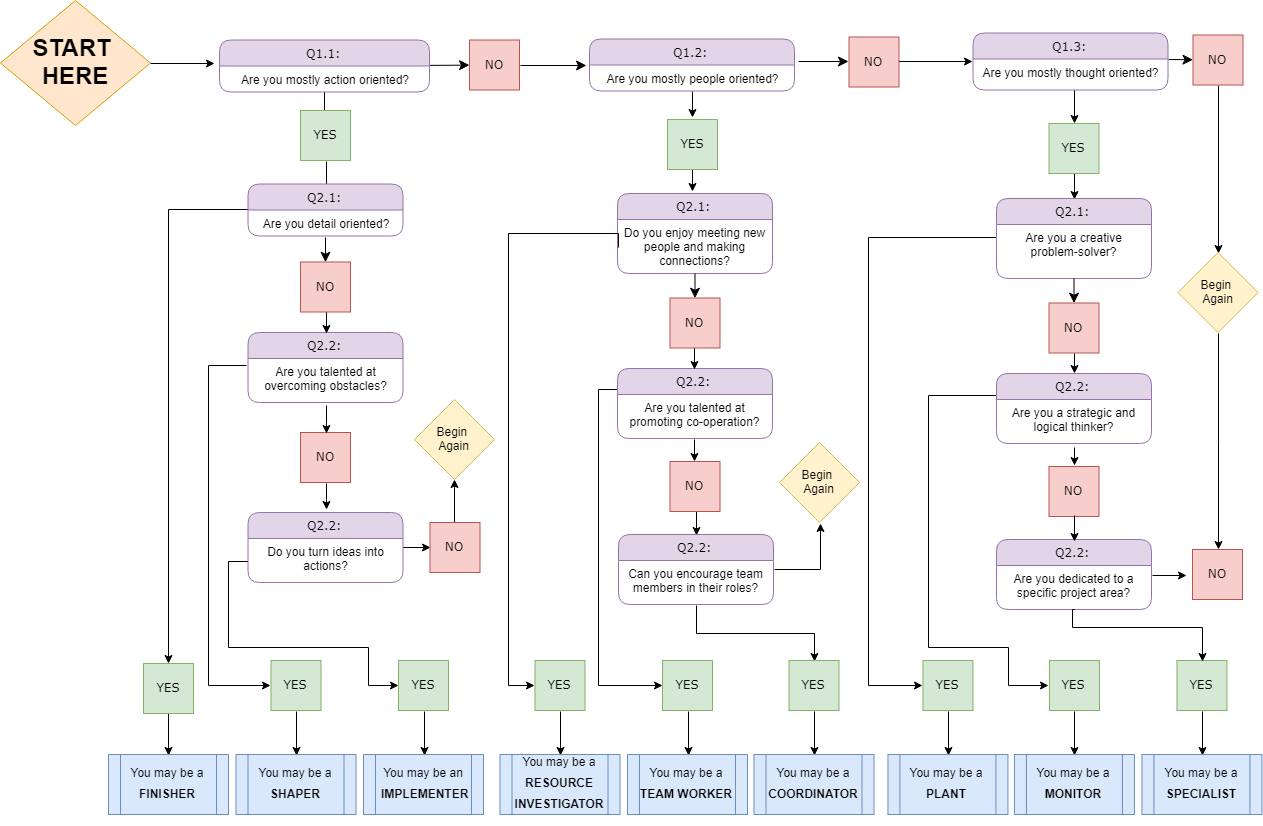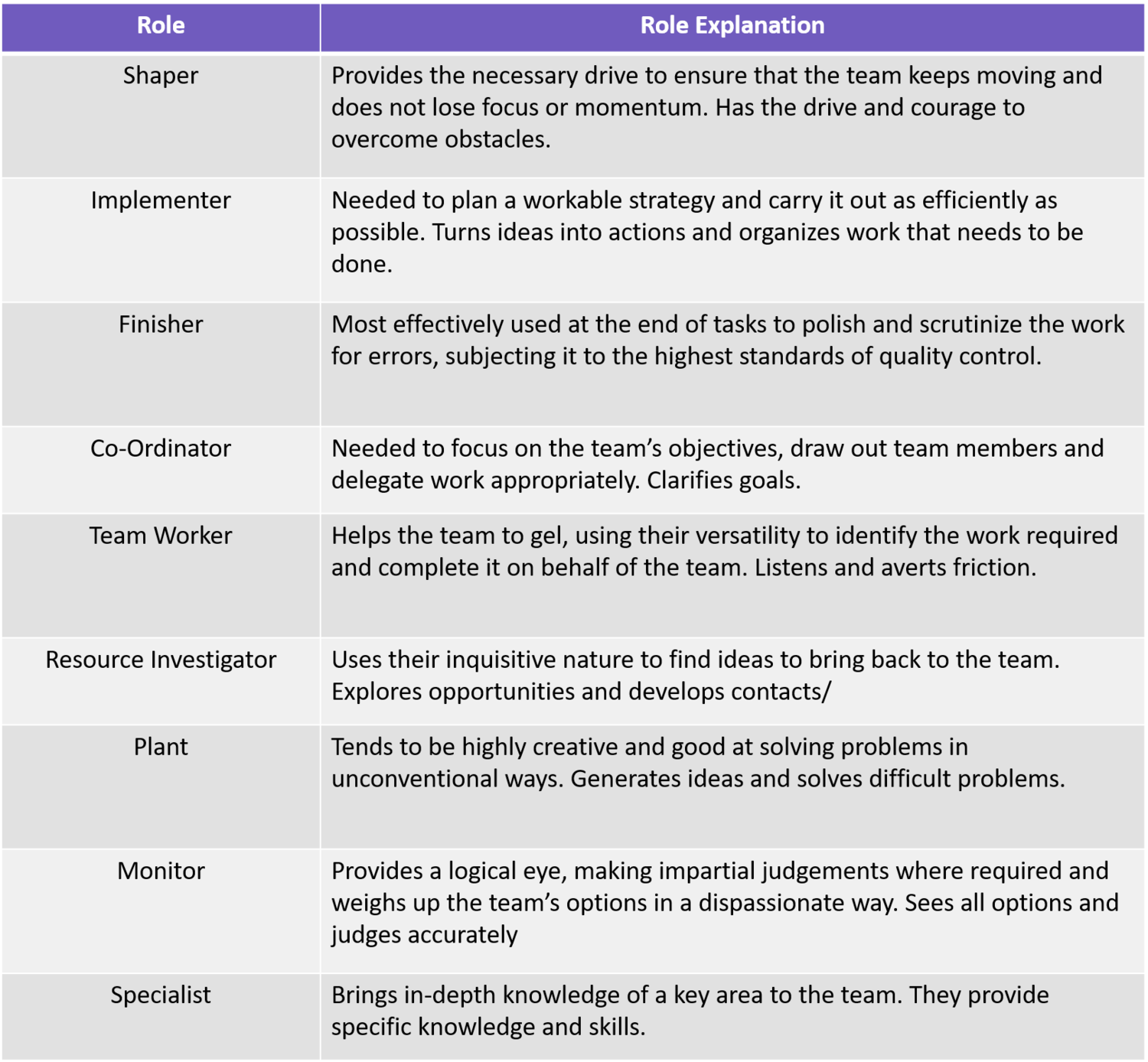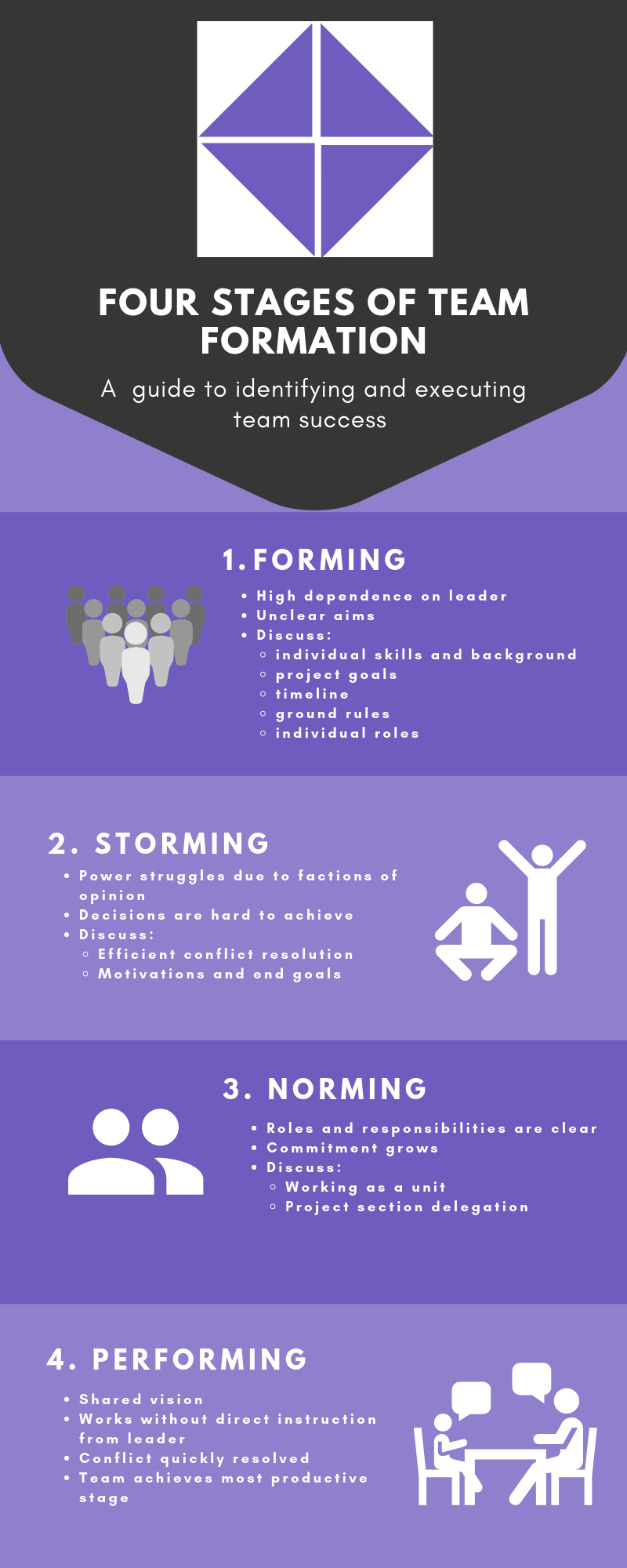Form Teams
List out the most compelling topics and projects you are interested in. Talk to your peers and find out what ideas they had. Make a list of topics and ideas, then write out who else was interested in them.
+ Team Roles
When determining your role in a team, answer these questions as honestly as you can. It is important that each team that forms has a diversity of roles. Each team should also consider if their roles align with the project's goal. There is a full test to determine team roles here.

+ Team Role Definitions
[ 1 ]

+ Tips for Forming Good Teams
- Learn what defines the strengths and capabilities of your team. It is important to understand every aspect of your team and where people can contribute to the project.
- Clearly define roles and responsibilities: This will allow team members to hold themselves and others accountable as it can lead to a chain of command for each aspect of the project.
- Give constructive and continuous feedback: This can help to quickly identify problem areas and also creates a culture that can give negative feeback wisely in order to facilitate achieving team goals.
- Highlight positive actions: Rewarding team members for exceptional performance can increase their willingness to complete tasks as they will feel valued for their actions. [ 2 ]
+ Team Sustainability Checklist
- Do all team members care about the problem/is the project of personal importance to each member?
- Does each team member bring something unique to the group (skill, insight, connection, etc)?
- Is each team member committed to the team/problem for the duration of the project?
- Are the team member’s personalities compatible?
- Is there a clear visionary leader?
- Is there a clear logistical leader?
- Do team members like each other enough to support each other’s ideas, opinions?
- Does the team have fun together?
- Do team members have compatible communication styles?
- Is each team member committed to contributing their fair share?
- Do team members have clear roles, plans, and goals?
- Does each team member see the potential impact of the project?
+ Four Stages of Team Formation
It is important to be able to recognize which stage your team is in. This can help the team mitigate problems before they arise. [ 3 ]

Sources:
[1] “The Nine Belbin Team Roles.” Belbin, www.belbin.com/about/belbin-team-roles/.
[2] Llopis, Glenn. “6 Ways Successful Teams Are Built To Last.” Forbes, Forbes Magazine, 22 Oct. 2012, www.forbes.com/sites/glennllopis/2012/10/01/6-ways-successful-teams-are-built-to-last/#670b42a12b55.
[3] “5 Stages of Team Development.” Toggl, toggl.com/stages-of-team-development/.